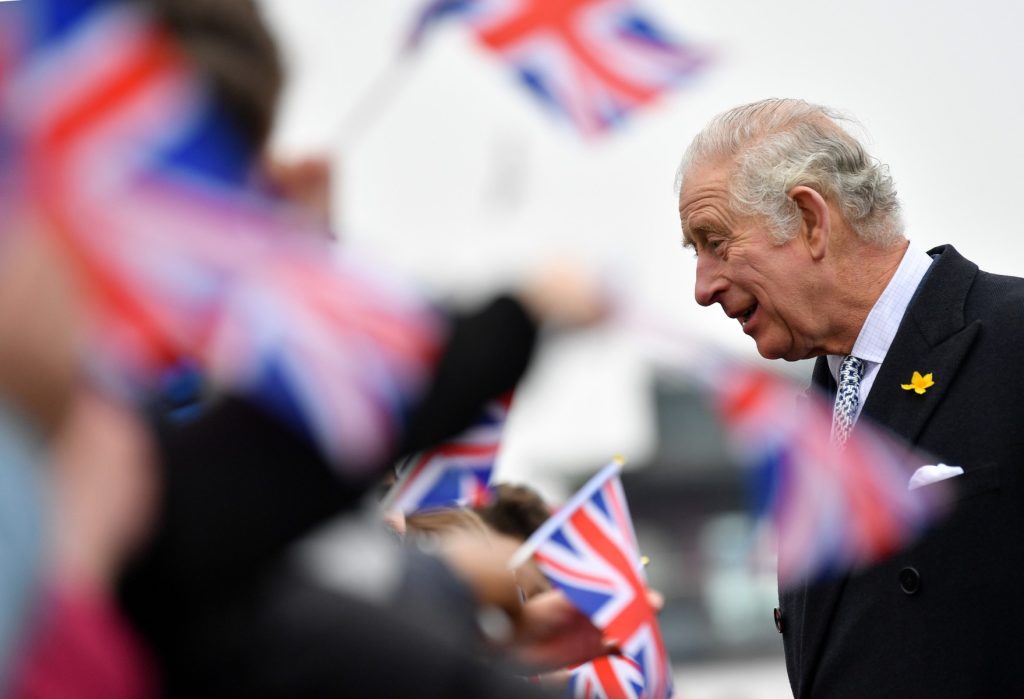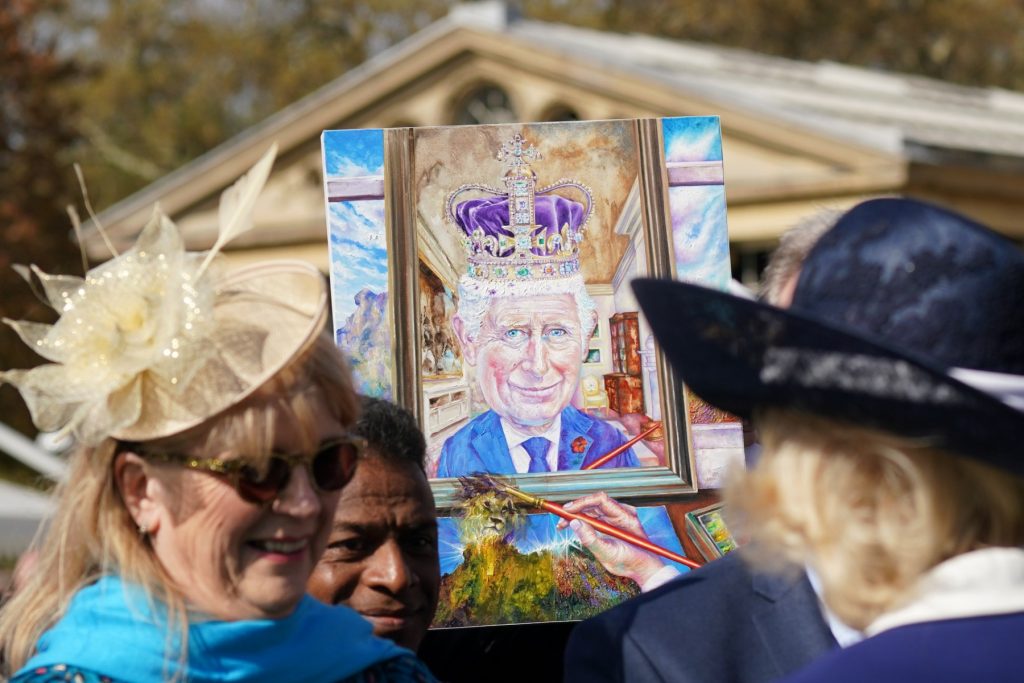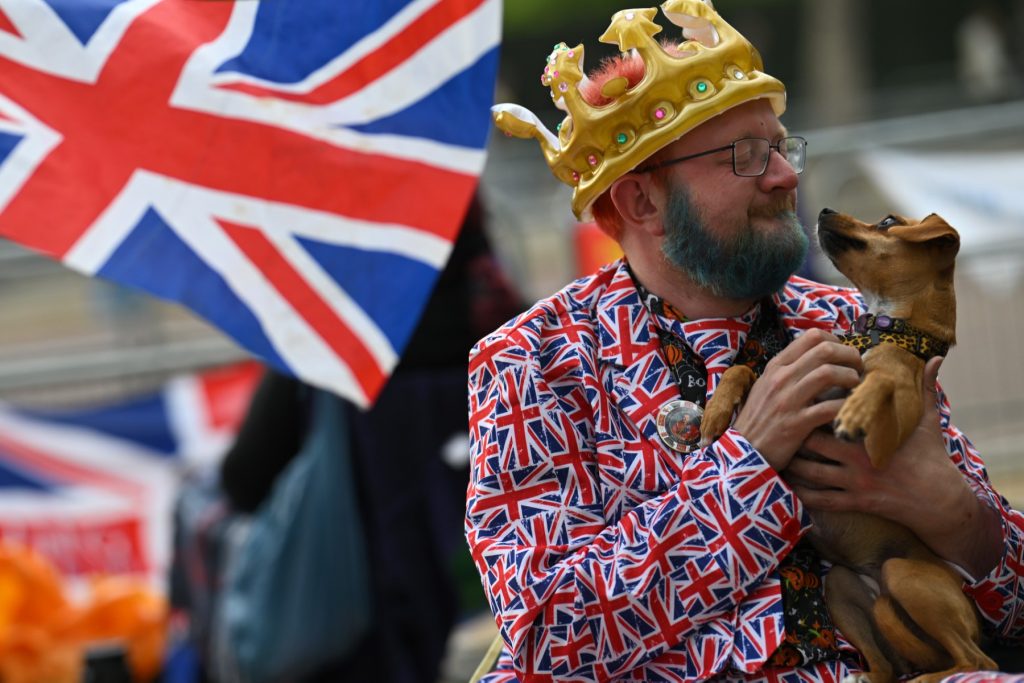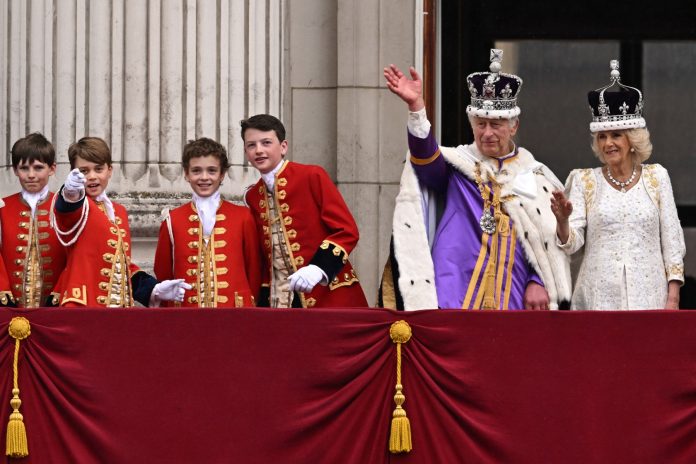Charles III was crowned monarch of the United Kingdom and 14 Commonwealth realms on Saturday at Britain’s first coronation for 70 years, during a ceremony steeped in a millennium of ritual and spectacle.
Charles, 74, became the oldest sovereign yet to be crowned at London’s Westminster Abbey, after a lifetime as heir to his late mother Queen Elizabeth II.
At 12:02 pm (1102 GMT), Archbishop of Canterbury Justin Welby placed the solid-gold St Edward’s Crown on Charles’s head as a sacred and ancient symbol of the monarch’s authority.
Welby also crowned Charles’s wife, Camilla, 75, capping a remarkable transformation from her position as a one-time royal mistress to “queen consort”, and now queen.
Cries of “God Save the King” rang out from the 2,300-member congregation, which included royalty and government leaders from worldwide.
US President Joe Biden, represented at the abbey by First Lady Jill Biden, tweeted his congratulations and paid tribute to the “enduring friendship” between the United States and Britain.
French President Emmanuel Macron, who did attend the ceremony, said: “Proud to be with you on this historic day.”
Further away in the Pacific nation of Vanuatu, hundreds gathered to celebrate on the volcanic island of Tanna, where Charles’s late father Prince Philip is venerated as a local deity.
Trumpet fanfares sounded at Westminster Abbey along with gun salutes across Britain and beyond.
Returning to Buckingham Palace in the day’s second horse-drawn parade, the royal family appeared on the balcony to applause and more chants of approbation from tens of thousands of well-wishers braving a spring downpour.
Some had camped out for days. A ceremonial fly-past was scaled down due to the weather.

‘Not my king’
As well as being the first coronation since that of Queen Elizabeth II in 1953, it was the first of a king since 1937.
But not everyone joined in the celebrations.
London police said they had arrested 52 people, using new powers rushed into law this week by the UK government to crack down on direct protest groups.
Intelligence showed that the individuals “would attempt to deface public monuments with paint, breach barriers and disrupt the official movements”, the Metropolitan Police said.
The Met deployed some 11,500 officers for one of its biggest ever security operations, having warned that it would have an “extremely low threshold” for protests.
The anti-monarchy movement Republic — which wants an elected head of state — said six of its organisers were detained, while climate activists Just Stop Oil said 19 of its number were held.
Nevertheless, dozens of Republic activists held aloft banners on the route of the procession route, declaring: “Not my king”.
Human Rights Watch, Amnesty International and other campaign groups condemned the arrests.
“This is something you would expect to see in Moscow, not London,” HRW said.
Hundreds held an anti-monarchy rally in Edinburgh, chanting “down with the crown”. Protesters also turned out in the Welsh capital, Cardiff.

Changes
Charles pledged “I come not to be served but to serve” during the Anglican service.
But while many of the intricate rituals and ceremony to recognise Charles as his people’s “undoubted king” remained, the sovereign sought to bring other aspects of the service up to date.
Female bishops and choristers participated for the first time, as did leaders of Britain’s non-Christian faiths, while its Celtic languages — Welsh, Scottish Gaelic and Irish Gaelic — featured prominently.
A gospel choir sang for the first time at a coronation while a Greek choir intoned a psalm in tribute to Prince Philip, who was born on the island of Corfu.
As king, Charles is supreme governor of the Protestant Church of England and has described himself as a “committed Anglican Christian”.
But key elements of the service recognised that Charles heads a more religiously and ethnically diverse country than the one his mother inherited in the shadow of World War II.
In another change, the coronation themes mirrored his lifelong interest in biodiversity and sustainability.

Outcasts
Rishi Sunak, a Hindu who is Britain’s first prime minister of colour, gave a reading from the Bible at the service, having described the coronation as “a proud expression of our history, culture and traditions”.
But polling indicates waning support for the monarchy, particularly among younger people.
Charles’s younger brother Prince Andrew — sidelined due to his friendship with the late convicted paedophile Jeffrey Epstein — was booed as he headed to the abbey.
Another royal exile, Prince Harry, who has criticised the family since leaving for the United States in 2020, attended the coronation on his own.
Harry left the UK just very shortly after the end of the ceremony, determined to be back in California on the same day his son Archie turned four, The Sun daily reported on its website.
Overseas, Jamaica and Belize both signalled this week that they are moving toward ditching the UK monarchy and becoming republics, while Australia, Canada and others may eventually follow suit.
Britons struggling with the soaring cost of living have meanwhile questioned why taxpayers should stump up for the coronation, with the bill estimated to be over £100 million ($126 million).
Yet the huge crowds of royal fans that built up all week in central London indicated that the royals still have a central role in British culture and history.
“It’s just too good an opportunity to miss,” said Nick Demont, 60, outside the abbey. “There’s a good chance I won’t see another one.”
British media noted the magnificence of the ceremony while at the same time highlighting the serious problems facing the country Charles inherits.
The left-wing Guardian daily hailed an event that was “ludicrous but also magnificent” adding that it had been an “extraordinary show of precision in a country where nothing works”.
And Josh Glancy, writing in The Times said the “stilted, almost anxious, expression” on Charles’s face “was perhaps a reflection of the scale of his task”.
“He rules over a country in a mess and a monarchy diminished by scandal, with his younger brother and son both cast out from the inner circle” while foreign realms are departing with the trend likely to continue, he said.









